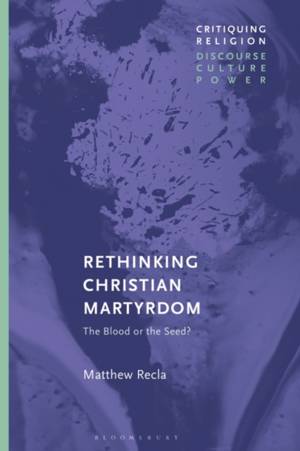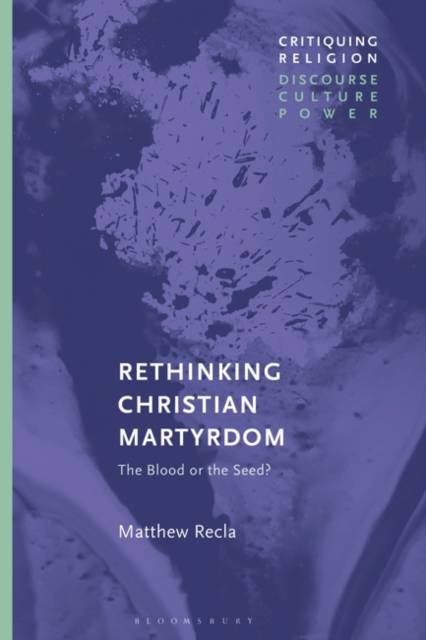
- Retrait gratuit dans votre magasin Club
- 7.000.000 titres dans notre catalogue
- Payer en toute sécurité
- Toujours un magasin près de chez vous
- Retrait gratuit dans votre magasin Club
- 7.000.0000 titres dans notre catalogue
- Payer en toute sécurité
- Toujours un magasin près de chez vous
Description
This book argues that we have been mistaken about the fundamental assumption that Christianity is the key to understanding the "Christian" martyr. Examining martyrdom in early Christian history, Matt Recla argues that the violent deaths of martyrs, real and imagined, were appropriated for Christian institutional life. Through deconstructing martyrdom and appreciating the complexity of the martyr, we recognize martyrdom not as a socio-historical phenomenon inherent to particular ideologies, and not as a religious "identity" but as the institutional co-optation of violence. The Christian apologist Tertullian argued that the blood of the martyrs was the seed of the Church, but while the seed may be the key to martyrdom, the blood is the key to the martyr.
The book shows how martyrs exceed the bounds of institutional narrative. Centering analysis of martyrdom first around the martyr's existential difference and the complex biological, psychological, and socio-cultural factors that lead to willing death, this book sheds new light on the motivations of martyrs, our fascination with them, and the parasitic relationship of religion to violent death.
In challenging long-held beliefs about the praiseworthiness of martyrdom, this book is of interest to scholars of religion as well as those concerned about the relationship between religion and violence.
The book shows how martyrs exceed the bounds of institutional narrative. Centering analysis of martyrdom first around the martyr's existential difference and the complex biological, psychological, and socio-cultural factors that lead to willing death, this book sheds new light on the motivations of martyrs, our fascination with them, and the parasitic relationship of religion to violent death.
In challenging long-held beliefs about the praiseworthiness of martyrdom, this book is of interest to scholars of religion as well as those concerned about the relationship between religion and violence.
Spécifications
Parties prenantes
- Auteur(s) :
- Editeur:
Contenu
- Nombre de pages :
- 232
- Langue:
- Anglais
- Collection :
Caractéristiques
- EAN:
- 9781350184299
- Date de parution :
- 18-04-24
- Format:
- Livre broché
- Format numérique:
- Trade paperback (VS)
- Dimensions :
- 156 mm x 234 mm
- Poids :
- 326 g

Les avis
Nous publions uniquement les avis qui respectent les conditions requises. Consultez nos conditions pour les avis.






